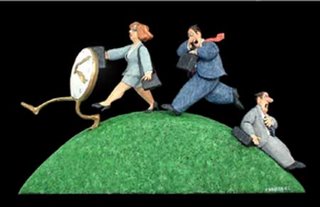 This morning I’m walking down the street in my neighborhood, when I pass a snazzy, purple Volkswagen Beetle parked along the street. I’m admiring the car’s immaculate paint job when I notice a word at the bottom of the New Jersey license plate. It says, “Historic.”
This morning I’m walking down the street in my neighborhood, when I pass a snazzy, purple Volkswagen Beetle parked along the street. I’m admiring the car’s immaculate paint job when I notice a word at the bottom of the New Jersey license plate. It says, “Historic.”Now wait a minute! A Volkswagen Beetle – historic? But evidently it is, nowadays.
Suddenly, I’m feeling my age. Our family had a Beetle when I was a kid. Priced as a bargain vehicle, it was the only set of wheels we could afford, when it came time to buy a second car for my mother to drive. That blue Beetle became the suburban chariot that schlepped my brothers and me to all our after-school events, Scout meetings and such.
 The Volkswagen was a novelty to my friends. A sure-fire way to impress them was to borrow the car keys from Mom, then take them out into the driveway and open up the front and rear hatches: showing them the engine in the back and the trunk in the front.
The Volkswagen was a novelty to my friends. A sure-fire way to impress them was to borrow the car keys from Mom, then take them out into the driveway and open up the front and rear hatches: showing them the engine in the back and the trunk in the front.Sometimes, on really cold days, the thing wouldn’t start. Then, we’d have to push it down the driveway into the street (it wasn’t very heavy, as cars go), and point it down the hill. We’d hop in, and my mother would then take her foot off the brake and let it roll rapidly downward, popping the clutch to start the thing – all of which we hoped would happen before we rolled out into heavy traffic on Washington Street. For a kid of 11 or 12, it didn’t get much better than that.
This car was part of my growing up. It can’t be a classic already. It just can’t.
But it is. Tempus fugit.
 “For all our days pass away under your wrath;
“For all our days pass away under your wrath;our years come to an end like a sigh.
The days of our life are seventy years,
or perhaps eighty, if we are strong;
even then their span is only toil and trouble;
they are soon gone, and we fly away....
So teach us to count our days
that we may gain a wise heart.”
(Psalm 90:9-10, 12)
“Counting our days” was what passed for wisdom in the world of the Hebrew Bible. When they counted their days, those ancient Hebrews came up with the proverbial “threescore years and ten” – seventy, in other words – as the normal upper limit on human life. A very few might live on to eighty (if they were strong), but this was considered exceptional.
If all goes well with my CT Scans (the one I had done yesterday, and the one I’ll have in mid-May, following my sixth chemo treatment), I’ll be in remission by the time I turn 50 in October. That will give me twenty more years until I hit the threescore-years-and-ten – although, as we all know, people in our culture with access to good nutrition and medical care can ordinarily expect to live a good deal longer than that.
 Assuming I do make it into remission – as Dr. Lerner seems confident I will – how long will it last? Could I be doing this chemotherapy thing again in another five years? Another ten? Will chemo even be the treatment of choice at that time (considering how rapidly the scientists are making new discoveries)? Maybe, when and if the cancer comes back, I’ll be receiving vaccine therapy instead (like the experimental protocol the folks at Sloan-Kettering wanted me to receive as a clinical trial – before the revised grading of my cancer disqualified me). Maybe I’ll have a stem-cell transplant. Maybe there will be some new treatment no one’s even thought of yet.
Assuming I do make it into remission – as Dr. Lerner seems confident I will – how long will it last? Could I be doing this chemotherapy thing again in another five years? Another ten? Will chemo even be the treatment of choice at that time (considering how rapidly the scientists are making new discoveries)? Maybe, when and if the cancer comes back, I’ll be receiving vaccine therapy instead (like the experimental protocol the folks at Sloan-Kettering wanted me to receive as a clinical trial – before the revised grading of my cancer disqualified me). Maybe I’ll have a stem-cell transplant. Maybe there will be some new treatment no one’s even thought of yet.It all seems so hypothetical. Before getting cancer, I would have routinely expected to live into my eighties or nineties. I still might – but there seem to be so many more factors, now, that could affect my lifespan.
“Counting my days” doesn’t seem so wise, after all. When I see a purple Volkswagen Beetle on the street, I should probably just enjoy it for what it is, in the here and now.
Now that’s wisdom.